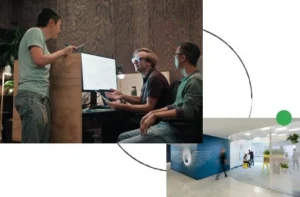Theme:
Our youth should inspire the way we think and act, and they shape the society we live in. As an African youth, what kind of industrialization should be prioritized to maximize the synergies with Africa’s development agenda towards the overarching objective of achieving sustainable development and prosperity for all? In doing so, how can our African leaders best pursue the envisaged industrialization pathway?
1. Purpose of the Essay Competition
The essay contest is organized in an effort to harness the energy, creativity, and initiative of the African youth in promoting a culture of sustainable development in Africa, with a particular focus on industrialization and innovation in Africa. It also aims to inspire African society to learn from the young minds and to think about how each of them can make a difference in our continent’s future. In a nutshell, the essay contest will serve to open up dynamic conversations and spur reflection and action by leaders on addressing issues on Industrialisation from the perspective of young people and push for much-needed reforms. The essay contest is organized by the African Union Commission as an activity within the preparation for the upcoming African Union Summit on Industrialization and Economic Diversification, scheduled to be held in Niger, in November 2022.
2. Background and Context
Africa’s Agenda 2063 – The Africa We Want, puts our continental aspirations on a path to sustained long-term structural transformation, with a growing youthful population, vast mineral resource endowments, significant improvements in the governance and business environments, a growing middle class, private sector investment growth and progress in accessing and adapting Fourth Industrial Revolution (4IR) technologies.
Industrialization is crucial for African Member States to transform their economies, create jobs, add value, and promote trade through greater integration into regional/global value chains. Africa has the potential to accelerate industrialization due to the convergence of a set of factors that is creating a new window of opportunity: § Emerging technologies and innovation associated with the Fourth Industrial Revolution (4IR), which have the potential to raise the African production capacities and improve income levels as well as the quality of life for its populations; § The dynamic context and development imperatives of the African continent, including the demographic dividend, and to the global state of affairs, with special focus on the imperative for African countries to transform their economies, create jobs, add value and promote trade through greater integration into regional/global value chains; § The relentless and severe social and economic shocks of the COVID-19 pandemic have also catalysed a number of opportunities; driven by our recognition of the systemic governance weaknesses and priority response imperatives to change the way we do business and to re-configure our economic development narratives; § Commencement of trading under the African Continental Free Trade Area (AfCFTA) spurred significant opportunities and a need to maximise the continent’s capacity to benefit from it. As we know, once fully implemented, the AfCFTA could create a single African market for goods and services, covering an estimated 1.2 billion people with a combined GDP of over USD $2.5 trillion across the 55 AU Member States;
The United Nations General Assembly (UNGA)’s decision to dedicate the period 2016-2025 to the Third Industrial Development Decade for Africa (IDDA III) presents another opportunity to rally global partnerships and efforts to work as a collective to drive structural transformation in Africa; and § Recognition of the critical role of the private sector and entrepreneurship in Africa. Africa’s industrialization policies are grounded in manufacturing, due to its multiplier effects on other sectors of the economy and its link with innovation, productivity, technological evolution, increased jobs, and economic growth. Despite these assumptions, Africa’s potential industrialization pathway in the current global context calls for innovative strategies that extend beyond traditional manufacturing activities to include a wider range of economic sectors that are relevant to the African context and have potential for increased economic growth, innovation, and employment and wealth creation. These include “industries without smokestacks” or tradable services such as tourism, agro-industry production methods, ICT and alike. The opportunities presented by such sectors for accelerating Africa’s industrialization are key in the context of rapid technological advances characterising the global Fourth Industrial Revolution. As we embark on the creation of a continental free trade area, the full realisation of this ambitious project requires not only phasing out tariff and non-tariff trade barriers but also a concerted effort to strengthen Africa’s resilience through improved regional integration of local manufacturing, production, and supply chains, and stronger MSMEs, regional markets and trade. Firstly, AfCFTA advocates for adopting coordinated industrial policies that enable countries to produce more sophisticated
goods and services to trade, reduce constraints to industrialization and both align with existing policies focused on economic diversification, structural transformation, environmental sustainability, and technological development. Furthermore, African countries also need to embrace innovative industrialization strategies that include high-potential entrepreneurial activities. Finally, micro, small and medium-sized firms with high-potential for growth and wealth creation should be enabled to usher in innovative business models and complement the growth of large companies in driving Africa’s accelerated industrialization.
3. AU Summit on Industrialization and Economic Diversification
In light of the key and strategic interdependencies between industrialization and the AfCFTA, the Summit aims to rally desired political momentum, resources, partnerships and alliances towards an Africa-Industrialization drive. This is along the continent’s resolve to drive structural transformation, built around leveraging Africa’s rich and diverse natural resources, while at the same time embracing current advances in technologies, continental and global geo-socio-political trends, and the emergence of tradable services. The Summit is expected to catalyze the evolution of a vibrant pan-African enterprise and capital base that will unleash an accelerated and sustainable industrialization pathway that is inclusive of all economic agents, including MSMEs, youth, and women. The impacts of the COVID-19 pandemic continue to drive the urgent and imperative need for bold actions to drive transformative change in key economic pillars such as industrialization.
In preparation for the Summit and for a decision by the Heads of State to renew and strengthen Africa’s industrialization framework, there is a need for the development of a clear, evidence-based policy brief to increase the awareness of our policy decisionmakers of the imperative. Furthermore, the said policy brief is envisaged to promote discussion/decision on this matter during all AU Statutory Meetings to be held all the way to the next Ordinary Summit. Summit Theme: “Industrialising Africa: Renewed Commitment Towards Inclusive and Sustainable Industrialization and Economic Diversification” 4. Awards: The following awards will be given to the three best essays respectively: 1st Prize will receive: § AUC issued Certificate § Round trip from home country to the AU Summit on Industrialization and Economic Diversification in Niamey, Niger. § Accommodation during the said Summit § Present the essay to the Summit to leaders, and technical experts 2nd and 3rd prize: § AUC issued Certificate § Publication on the AUC website.
5. The outcome of the Essay Competition The winning essay will be presented at the AU Summit on Industrialization and Economic Diversification in Niger. The essay will be used as a guideline, a voice of young people and their views on the promotion of SMEs and Innovation on the continent especially leveraging from the AfCFTA. The essay should be centred around the Summit theme, elaborate the challenges and actions within the region and solutions to those challenges. It should also include one of the AU Agenda 2063 aspirations: § Aspiration 1: A prosperous Africa based on inclusive growth and sustainable development § Aspiration 2: An integrated continent, politically united and based on the ideals of Pan-Africanism and the vision of Africa’s Renaissance § Aspiration 6: An Africa, whose development is people-driven, relying on the potential of African people, especially its women and youth, and caring for children. 6. Activities and Tasks § A selection panel will read and judge the best essay submitted § The winner will present his/her essay at the AU Summit on Industrialization and Economic Diversification in Niger. § Novelty: Essays must be original and unpublished. Plagiarized entries will be rejected. § Copyright of the contested essays: will be assigned to the organizer. 7. Format specifications: § Arial size 12 § 1.5 spacing § 2000 – 3000 words maximum § PDF or MS Word version.
8. Eligibility § The competition is open to young people 15 – 35 from All African Union Member States. § Only one entry per person. § The essay can be submitted in one of the AU working languages (Arabic, English, French, Portuguese, and Spanish) 9. Timelines § Call for essay submissions: 31st August 2022. § Application deadline: 30th September 2022 § Selection of the winner: October 2022 § Announcement of the winner: October 2022.







